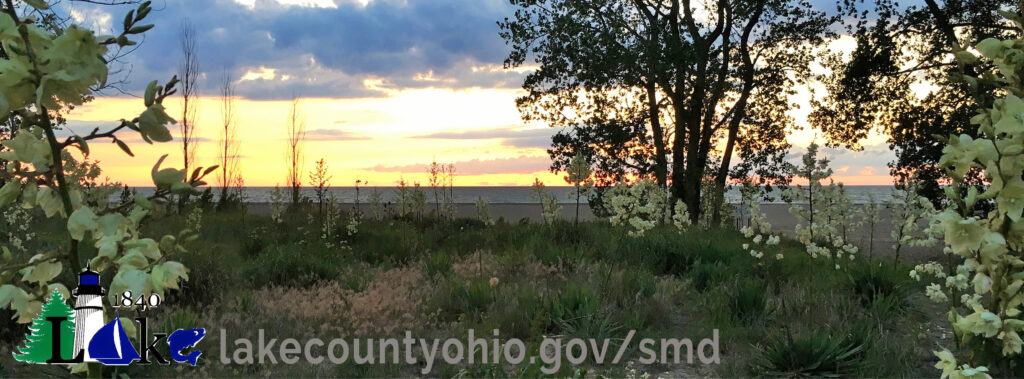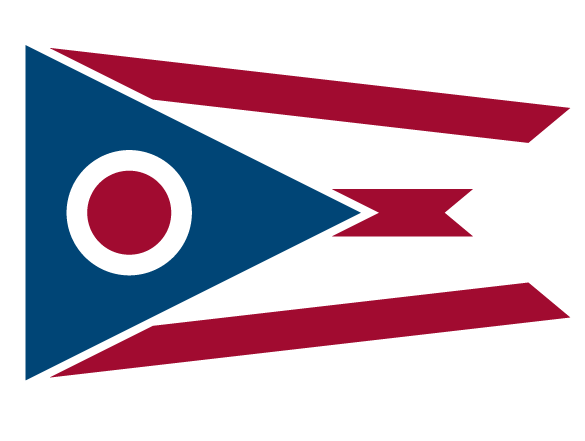Stormwater Management
NOTICE:
SITE GRADING AND DRAINAGE PLAN REVIEW is now performed at the office of the Lake County Stormwater Management Department: Click HERE for more information.
WE DO NOT PERFORM EMERGENCY RESPONSE
In case of a stormwater related emergency, call local authorities or your road service department.

Latest News
Stormwater Management Resources
| Name | Job Title | Phone | |
|---|---|---|---|
| Stormwater Management Department | 4403505900 | [email protected] |
- Where does our water go?
All the water we use inside our homes goes directly to the sanitary sewer and then to a wastewater treatment plant or our household sewage treatment. The cleaned water is then released into an area stream or into the ground in our backyard.
- What about all the water outside of our homes such as the rainwater that falls on our roofs, lawns, driveways, roads, streets, roadside ditches and parking lots? Where does this water go?
It is not always easy to tell where this “STORMWATER” goes after it gets to the gutter, storm drain, street or ditch. The stormwater flows from these places to our creeks, streams, and lakes, BUT IS NOT CLEANED before it gets there.
- What is the problem with stormwater pollution?
Rainwater from roofs, lawns, driveways, streets, roadside ditches and parking lots in Lake County drain to area creeks and rivers and then to Lake Erie. This rainwater has a direct impact on some of our greatest assets in this area. We not only affect the health of our creeks, but the health of our Lake, its beaches, and our drinking water supply.
Stormwater picks up trash and pollution. Examples include oil and antifreeze that drips from our cars, excess fertilizer and pesticides from our lawns, litter, grass clippings, leaves, and pet waste. Once pollution is picked up by the rainwater it moves through gutters, storm sewers and ditches to our creeks, streams, and lakes where it can cause health and safety problems for us and the living things in them.
- Why is there a stormwater assessment fee?
The federal mandate requires that local governments bear all costs associated with the new regulations, so Lake County instituted a Stormwater User Fee program. The fees are charged on individual parcels of land based on the amount of impervious area on the property (hard surface). The amount of impervious land is used because it has been shown to be a good indicator of the amount of runoff that leads to pollution.
- How are residential properties charged?
All residential properties are charged a flat rate based on an average impervious area of 3,050 square feet for each parcel. Your councilmen elect chose to participate as a Level 2 member community. Therefore, you are charged $3.50 per month or $42.00 annually.
- How are non-residential properties charged?
Your councilmen elect chose to participate as a Level 2 member community. Nonresidential properties are charged based upon the square footage they contain divided by the equivalent residential unit (ERU) which is 3,050 sq.ft. For example, a commercial property of 9,150 sq. ft., which is equal to 3 ERU, would be charged $10.50 per month.
- Do you feel you have been improperly charged?
If a property owner feels that they have been improperly charged for their User Fee, they have the option of submitting a User Fee Adjustment Request (pdf file) to our department. This form can either be downloaded with the above link, or requested from our office. Please remember the following:
Application must have complete Property Owner information. Any incomplete applications will be returned to property owner for corrections.
Applications must be submitted to our office within 30 days of receipt of bill.
Once completed application is received, it will be reviewed and verified by our department. If approved, confirmation of adjustment will be sent to mailing address of property owner on application. If disapproved, a letter stating the reasons why will be sent instead. Any disputes must be submitted in writing for review by Director and/or Advisory Board.
Please allow 2-3 weeks for processing of adjustments.
- What can you do?
There are many ways you can help keep our water clean, save money, and prevent problems.
- How can I manage a wet area in my lawn?
Is there a wet area in your yard that never really seems to dry out? Try planting a rain garden! Not only will it absorb stormwater, it will be a beautiful garden in your yard and attract different wildlife. For more information and guidance on how to plant a rain garden, click here for the “Rain Garden Manual for Home Owners”.
- Where do I dispose of Pharmaceuticals?
Pharmaceuticals and Our Waters – Both prescription and non-prescription drugs are being found in our rivers, streams, and ground water. These drugs are considered to be “emerging contaminants of concern” partly due to the harmful effects that low concentrations are already having on the fish population. Our existing waste water treatment plants and septic systems are not designed to remove these contaminants. A certain amount of these contaminants can be reduced with the use of pharmaceutical drug disposal bins instead of flushing unwanted drugs down the toilet or putting them in the trash.
- Where Do I Find A Drug Disposal Bin?
Take Pharmaceuticals to a collection bin at one of the convenient drop-off locations. To find a location near you and for more information, contact the Lake County General Health District at (440) 350-2543 or visit: www.lcghd.org/pharmaceutical
- Where do I take my un-wanted paint?
To dispose of latex paint, open the can of paint somewhere out of the rain and snow and allow the paint to dry out. You can even add kitty litter to the paint to help it dry faster. Then dispose of the paint with your household trash. Dispose of oil-based paints at the Lake County Household Hazardous Waste Collection Dates.
For the upcoming dates, visit:
www.lakecountyohio.org/Divisions/SolidWaste/SpecialCollections/tabid/356/Default.aspx
Remember, never dump unused paint down any drain, especially a storm drain or ditch!
- What type of maintenance is required for septic systems?
If you have a household sewage treatment system, regular maintenance is necessary to ensure your system functions as designed. Not only will regular maintenance save you money, but it will also help prevent stormwater pollution and keep sewage out of our waterways. For more information visit the Lake County General Health District website at http://www.lcghd.org/operation_maintenance
| Location Name | Address | City | Zipcode | Website | Phone |
|---|---|---|---|---|---|
| Stormwater Management Department | 105 Main St. Suite A305 | Painesville, OH | 44077 | 440-350-5900 |
| Title | Description | URL |
|---|---|---|
| Chagrin River Watershed Partners | https://byednn.lakecountyohio.gov/LinkClick.aspx?link=http%3a%2f%2fwww.crwp.org&tabid=1165&portalid=21&mid=4946 | |
| Friends of Arcola Creek | http://friendsofarcola.freeservers.com/ | |
| Lake County General Health District | https://www.lcghd.org/ | |
| NEOPIPE | Lake Erie Starts Here is a project of the Northeast Ohio Public Involvement Public Education (NEO PIPE) work group. | https://www.lakeeriestartshere.org/ |
| Northeast Ohio Areawide Coordinating Agency (NOACA) | https://www.noaca.org/ | |
| Ohio EPA | https://www.epa.state.oh.us/ | |
| Ohio Watershed Network | https://ohiowatersheds.osu.edu/ | |
| OSU Extension | https://lake.osu.edu/ | |
| US Environmental Protection Agency (USEPA) | https://www.epa.gov/ | |
| Water Management Association of Ohio | https://wmao.org/ |
